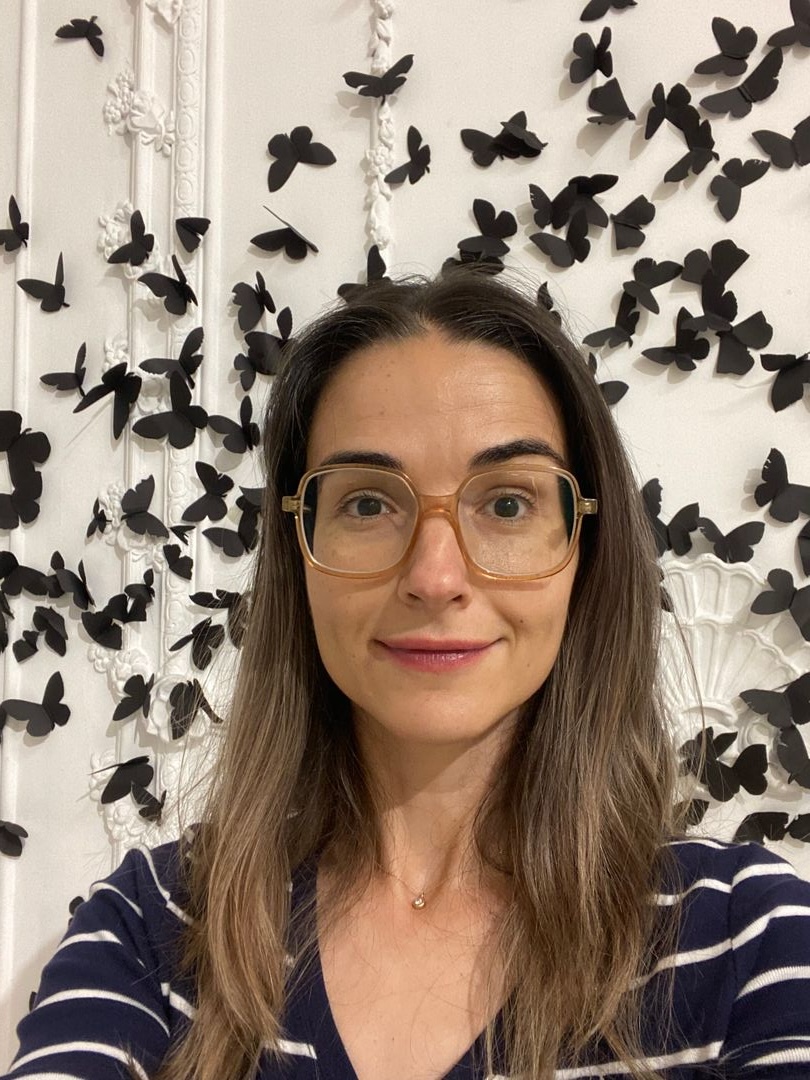Where Do You Go When You Want to Hear Your Own Thoughts?
Not the automatic ones, not the to-do list, but that inner voice that gathers all the things that need to be felt.
I walk in nature. Every time. And not because I have a plan, but because that’s where I get recharged.
I remember an April afternoon when I was walking with my partner through Lee Memorial Garden in New Canaan. It was quiet, the sun was gentle, the air fresh, the daffodils spread a subtle scent, and a few steps away, a rabbit was nibbling on moss and leaves. In those moments, I was simply there. My mind was calm, and both my body and soul were fully present.
Biophilia – The Innate Love for Life and All That Is Alive
This triple connection—body, mind, soul—is no accident. It is, in fact, the essence of biophilia, a concept first introduced by humanist psychoanalyst Erich Fromm and later expanded by biologist E.O. Wilson. Biophilia is the natural love for life and all that is alive.
It’s not a whim, not a weekend passion, but a deeply human need. It’s a connection that activates every time we turn toward nature, even if just for a few minutes.
The Brain on Nature: What Science Tells Us
Cognitive psychologist David Strayer, professor at the University of Utah, has studied how time in nature impacts brain function. He identified three major brain networks that regain balance when we unplug from the noise of the world and reconnect with the natural environment:
- Executive Network: This helps us make decisions, plan, solve problems. In urban and digital environments, this network is overstimulated. But in nature, it gets exactly what it needs: an active break.
- Spatial Network: This helps us orient ourselves in the world. As we walk among trees, stepping on grass, noticing the roots, the direction of light, or the shape of a trunk, this network gently brings us into the present moment—into our bodies.
- Default Mode Network: This becomes active when we relax and reflect. It’s the part of the brain involved in intuitive guidance and self-reflection. In natural environments, this network has space to operate and gives us access to deeper thinking and self-connection.
In nature, these three networks collaborate.
The mind clears.
Tensions soften.
Thoughts settle.
More than once, after a solo walk or an outing with someone dear, I’ve come home with clarity, creative ideas, courageous decisions, or a calm I couldn’t find elsewhere. In those moments, surrounded by trees, flowers, birdsong—I feel nature as a deeply therapeutic space.
A place where we don’t have to perform, only be.
Biophilia in Numbers: Recent Scientific Evidence
Recent research confirms what many of us feel intuitively.
A 2023 study in the Journal of Environmental Psychology showed that just 20 minutes spent in an urban park can reduce cortisol (the stress hormone) by up to 18%.
Another study by the University of Exeter revealed that people who spend at least two hours per week in nature report significantly higher well-being and 59% lower risk of anxiety.
Nature and Romanian Identity: An Ancestral Bond
For us Romanians, nature is more than a recreational space—it’s a part of our cultural identity. Romanian folklore and mythology are rich in natural symbols: the forest (codrul), the Sânziene fairies, Dragobete, the god of love.
Whether it’s the Prahova Valley, the Apuseni Mountains, the Danube Delta, or lesser-known regions like Țara Lăpușului or Lunca Mureșului—Romania offers countless places for reconnection.
You don’t need elaborate expeditions—even a weekend in a traditional village can rekindle your connection with nature’s rhythms.
Nature as an Anchor in Difficult Times
In recent years marked by global uncertainty, nature has proven to be an invaluable refuge. During the pandemic, time spent in parks and green spaces increased by 200%.
Psychologists talk about the “anchoring effect” nature offers in times of crisis. The steady rhythm of the seasons, daily cycles—these remind us that there’s a larger order beyond the chaos.
When control feels like an illusion, the simple fact that a tree continues to grow, or that flowers bloom year after year, offers us emotional stability.
Now I Invite You to Pause for a Moment and Ask Yourself:
- How does your body feel when you're in nature—relaxed, alert, curious?
- What changes have you noticed in your thinking after a simple walk in a forest, or even a botanical garden (I love the one in the Cotroceni neighborhood of Bucharest)?
- What would your life look like if you gave nature sacred time daily or weekly—and in doing so, gave yourself that time too?
A Small Ritual of Returning to Yourself
- Choose a quiet patch of nature.
- Put your phone on silent—or leave it at home.
- Breathe deeply three times and check in with your body: where do you feel tension?
- Then walk slowly for 20–30 steps, paying attention. With each step, mentally name something you see, hear, or feel. Maybe that unmistakable smell after rain—that fresh-earth scent I adore. It’s called geosmin, and I plan to write an entire piece about it.
Breathe consciously, unhurried. This is your form of reconnection—always available, always free.
In the Words of a Genius…
Let the words of a genius inspire you to cultivate biophilia at least once a week:
Ludwig van Beethoven said,
“The woods, the trees, and the rocks give man the resonance he needs.”
Biophilia is not a luxury—it is a necessity for the modern mind and soul. Give it your time, and it will give you back clarity, calm, and a renewed connection to yourself.


